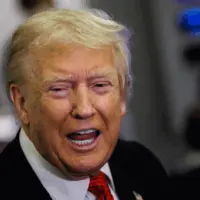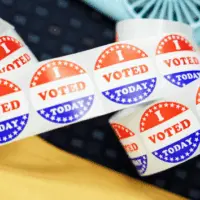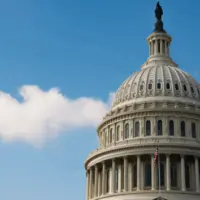
(WASHINGTON) — Since taking office ten months ago, Donald Trump has been sued in court hundreds of times by progressive organizations seeking to challenge his agenda.
The lawsuit over his sweeping global tariffs now before the U.S. Supreme Court is not one of them.
The group behind the lawsuit is a nonprofit organization that, for the last decade, has consistently fought in court for private property rights, free speech, and other individual rights, including a landmark decision when the Supreme Court determined that millions of public sector workers no longer needed to pay dues to unions that took positions they disagreed with.
According to Jeffrey Schwab, senior counsel and interim director of litigation at the Liberty Justice Center, bringing a case to challenge the tariffs aligns with the organization’s nonpartisan goal of enforcing constitutional and statutory limits on government overreach.
“We have three branches of government. They’re supposed to be coequal. I think we’ve been trending in the expansion of the executive branch’s power for the last several decades, and at some point, it’s going to be a problem,” Schwab told ABC News.
Filing nearly 140 lawsuits since its founding in 2011, The Liberty Justice Center has cemented a reputation as a legal force for many right-leaning causes, but the tariffs case has put it squarely against the president on his signature issue.
Schwab said the idea to sue was hatched after he read a blog post by Ilya Somin, a professor at George Mason University’s Antonin Scalia Law School, in which Somin expressed his belief that the tariffs were both unconstitutional and illegal, especially in light of the Supreme Court’s recent approaches to major questions and nondelegation doctrine.
“After reading that blog, I thought that would be an interesting case to bring with those claims, and we reached out to Professor Soman, and we had a discussion,” Schwab said.
And when Trump announced his sweeping tariffs on “Liberation Day” in April, the idea of a lawsuit began to gain momentum with Soman and Schwab beginning to seek out small businesses that might be interested in suing. With Soman making a blog post titled “Looking for Plaintiffs to Challenge Trump’s IEEPA Tariffs in Court” to solicit plaintiffs for the Liberty Justice Center, Schwab said his inbox quickly filled with interested small business owners, who happily shared how they were harmed by the sweeping and at times arbitrary tariffs.
“We got an overwhelming response of small business owners,” said Schwab, who recounted interviewing about 50 different small business owners. They ultimately landed on five business, including a wine and spirits importer, fishing outfitter, plastics producer, cycling apparel maker, and producer of children’s learning kits.
“They are five different diverse companies. They’re of different sizes, different industries, different geographic locations, and we think, represent the small business community in the United States very well,” he said.
Shortly after Liberation Day, Liberty Justice Center filed their lawsuit in New York’s Court of International Trade, arguing that the International Emergency Economic Powers Act does not give Trump the power to impose sweeping tariffs unilaterally. A panel of judges ultimately agreed with their case, issuing a unanimous decision in May that the tariffs were illegal. The Trump administration appealed, and the U.S. Court of Appeals for the Federal Circuit upheld their decision, though Trump was allowed to keep the tariffs in place while the issue made its way through the court. Come Wednesday, former Acting Solicitor General Neal Katyal is set to argue on behalf of the businesses at the Supreme Court.
According to Oliver Dunford, senior attorney at the libertarian-leaning Pacific Legal Foundation, the tariffs case could have the potential to be one of the most critical separation of powers cases in recent history, with Trump assuming the authority to impose tariffs on any item imported from any country.
“The previous Presidents have pushed the envelope, both Republicans and Democrats, and this kind of arbitrary rulemaking is not new,” said Dunford. “This is on a scale that’s certainly different. This is just about every product, just from just about every country, and who knows when it’s going to end.”
Copyright © 2025, ABC Audio. All rights reserved.














